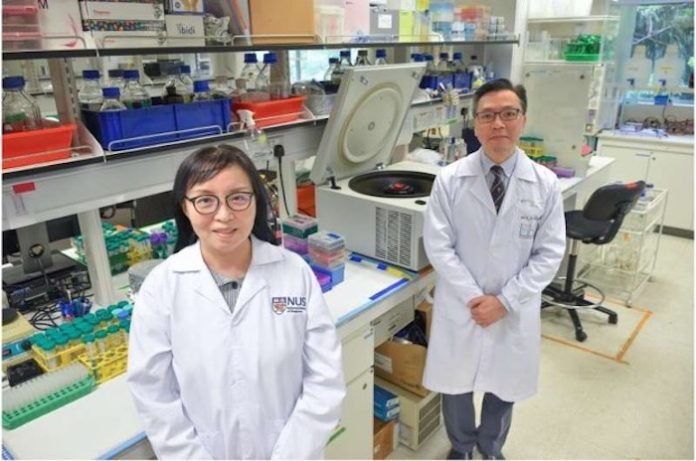
In a study from the National University of Singapore, scientists have discovered a novel property of a protein found in human lungs that could lead to the development of biological drugs to treat chronic obstructive pulmonary disease (COPD), a debilitating, progressive lung disease that is one of the leading causes of death worldwide.
COPD is currently the third-leading cause of death globally and poses a large socioeconomic burden on nations.
It can be caused by long-term exposure to irritants or particulate matter, such as cigarette smoke, and symptoms include coughing, breathing difficulties, mucus production and wheezing.
Patients with COPD display two key conditions—emphysema (the destruction of alveolar walls and enlargement of the alveoli) and chronic obstructive bronchitis (inflamed small airways).
These patients suffer persistent respiratory symptoms with progressive long-term lung function decline.
However, current drugs targeting COPD only provide symptomatic relief and are not able to suppress the underlying tissue inflammation to effectively block the spread of COPD or reduce mortality.
In the study, researchers discovered that a lung-resident protein, called isthmin 1 (ISM1), is critical for restraining inflammation in a healthy lung by selectively eliminating inflammation.
The team discovered that ISM1 helps to maintain healthy lungs, reducing inflammation.
The researchers found a reduction in lung inflammation, suppression of emphysema development, and restoration of lung functions.
These findings lend support to the development of ISM1 as a potential treatment for COPD.
These findings not only provide a new avenue to develop novel and effective drugs for COPD but also warrant studies of ISM1 in other inflammatory respiratory diseases.
The development of a drug based on this research is currently in the pre-clinical stages of testing.
If you care about lung health, please read studies about the cause of wheezing in the lungs, and she was being treated for her lungs, but the problem was her heart.
For more information about health, please see recent studies about mouthwashes that may suppress COVID-19 virus, and results showing rare blood clots after COVID-19 vaccination.
The study was conducted by Associate Professor Ge Ruowen et al and published in Proceedings of the National Academy of Sciences.
Copyright © 2022 Knowridge Science Report. All rights reserved.



